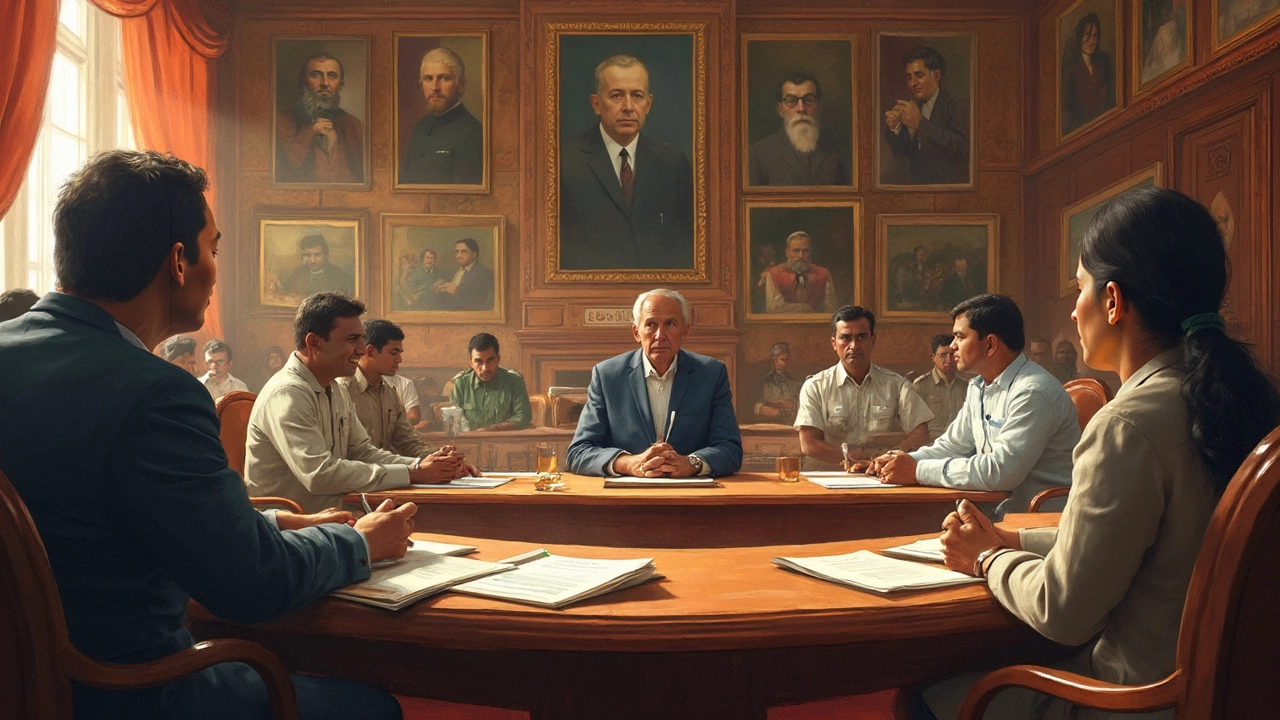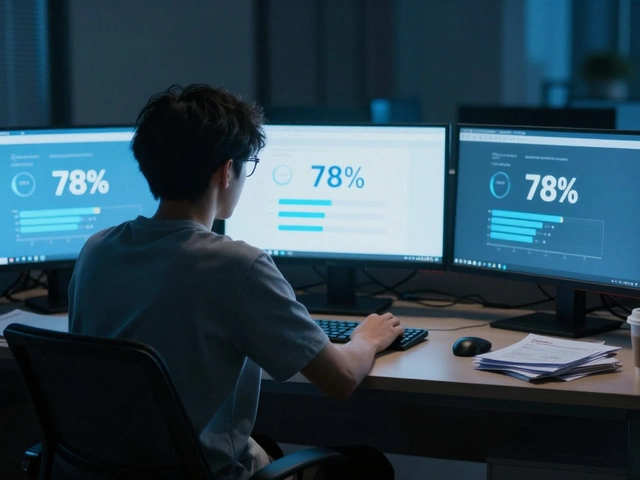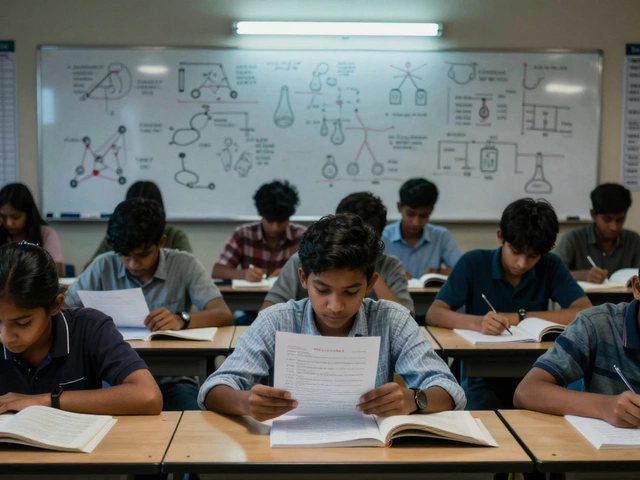So, you want a government job, eh? But you're probably wondering just how many interviews you'll have to navigate before landing that gig. Well, unlike many private sector roles, government jobs often come with their own unique set of hurdles. It's not uncommon to face multiple rounds, each with its own set of challenges.
The number of interviews can depend on the position you're aiming for. Some roles might have just a couple of interviews, while others, particularly high-level positions, could involve more. Typically, though, you should prepare for at least two rounds. The first might be to see if your skills and experience match up, while others might dig deeper into team fit or technical know-how. It's like a multi-level game, each stage revealing a new boss to beat.
But don't let that stress you out. The good news? Being prepared can make all the difference. Knowing what to expect and showing off your best self can really boost your odds. Understanding the role, showing you're a good fit, and being ready for different interview formats can set you up for success. Nobody said it would be easy, but knowing the playbook certainly helps.
- Understanding the Government Interview Process
- Typical Interview Stages
- Preparing for Common Interview Formats
- Showcasing Your Skills and Experience
- Tips for Success in Government Interviews
Understanding the Government Interview Process
Stepping into the world of government job interviews can feel like embarking on a lengthy journey. Unlike private sector jobs where you might have just one or two interviews, government roles often involve several stages. This isn't just to make things complicated—there's a reason for it. Each stage is designed to ensure the best candidate for a position that typically offers stability and the chance to serve your community.
Generally, the process kicks off with a phone screen or an initial interview. This part is usually about checking if your skills match the job requirements. Think of it as the 'introduction' stage—where you get to make a killer first impression and highlight your qualifications.
Then comes the main event—the panel interview. Yep, you heard that right. Instead of a one-on-one, you might face a group of people, all ready to grill you. Sounds intimidating? It can be, but it's actually a chance to show off how well you can communicate with a diverse team. You'll often find representatives from different departments in the panel, each bringing their own perspective to find the ideal candidate.
If you're aiming for senior positions, there could be additional interviews. These might focus on leadership skills or delve deeper into your past work experiences. Some departments even bring in psychometric tests or specific task-based assessments to make sure you’ve got the skills they need.
For roles that involve security clearances, things get even trickier. You'll need to pass background checks, which can take time. But don't worry too much—if you're upfront about your history and circumstances, this part should run smoothly.
Here's a little pro tip: get familiar with the specific department's expectations. Every government job has its own quirks and priorities, so understanding what matters most to the people you'll be working with can give you a real edge.
Government jobs are serious business with a ton of people applying. But by understanding and preparing for each part of the government hiring process, you're already a step ahead. Knock their socks off by being ready, informed, and eager to join their ranks.
Typical Interview Stages
So, what's the deal with government job interviews? Well, let's break it down so you know exactly what to expect. Typically, the process is like climbing a ladder, where each step gets you closer to the job.
The first stage is usually a screening interview. It’s pretty straightforward. Think of it as a prelim match. This interview is generally over the phone, or sometimes it might be a virtual call, especially with all the remote work happening. They check if you meet the basic criteria. Are you qualified? Available? Willing to relocate? This is where you need to tick off those boxes.
Next up is the panel interview. You're now facing a group, sometimes three or more people who are probably from different departments or levels within the organization. They’ll dive deeper into your experience, trying to see if you're a fit for their team and the government culture. It can feel like sitting for an exam with more than one examiner, but don’t sweat it. Being well-prepped helps you sail through.
Some positions might also require what's called a technical interview, especially if it's a role that demands specialized knowledge, like IT or engineering. Here, they might throw scenarios or problems at you to solve on the fly, just to see if you can hack it under pressure.
Finally, you might encounter a final interview with higher-ups or the head of the department. This one is more about fit and whether your vision aligns with theirs. Getting to this point means you're in the home stretch, so just be yourself and show why you'd be a great addition to their team.
It's a journey, no doubt. But understanding these stages gives you the upper hand. You'll know where to focus your prep and when to bring out different parts of your skillset. Remember, each interview is a step closer to that government job you're after.

Preparing for Common Interview Formats
When it comes to snagging a government job, the interview formats can be a bit different from what you might be used to in other sectors. Let's break down the common formats and how you can ace them.
First up, there's the panel interview, which is a classic in government jobs. Instead of sitting across from just one person, you'll often find yourself facing a few interviewers. Each person might represent a different aspect of the role, such as skills, culture fit, or technical knowledge. The key here is to make sure you're addressing the person who asked each question and keep your answers structured. Sometimes, it helps to note down the interviewers' names as they introduce themselves. A handy trick? Repeat their names when responding. It shows you're engaged and makes the interaction more personal.
You might also encounter structured interviews. These are all about consistency, with each candidate getting the same set of questions, usually focusing on behavior or skills. Here, the STAR method (Situation, Task, Action, Result) is your best friend. It helps in forming concise and effective responses. Think of past experiences that showcase your abilities and have them ready in this format.
Then there's the technical interview, where your specific skills are put to the test. This could involve problem-solving exercises or scenario-based questions relevant to the job. Preparing for this format means diving deep into the technical knowledge required for the position. Brush up on the latest in your field, and maybe do a few practice tests online to get comfortable.
Don't forget the good old telephone or video interview, which is often used as an initial screening or for remote positions. Treat it like an in-person interview. For video calls, keep your background tidy and free from distractions. Make sure your technology is up to scratch, test everything beforehand, and dress appropriately—yes, even for a phone call. You never know when the camera might turn on!
- Ensure you know the interview format in advance.
- Research common questions for the position you’re applying for.
- Practice with a friend or in front of a mirror to build confidence.
- Use tools like online interview conductors to practice under real conditions.
In the end, practice and preparation will boost your confidence in whichever format you face. And remember, being yourself and showcasing your genuine interest in the government role often counts for a lot more than you think!
Showcasing Your Skills and Experience
Alright, let's talk about making sure your skills and experience shine during those government job interviews. It’s not just about saying what you’ve done, but how it relates to the job you're after. Employers in the public sector are looking for candidates who can demonstrate how they've applied their expertise to drive results, especially in a team-oriented environment.
First things first, understand the job description inside and out. What skills are they calling out? Take note and prepare to give specific examples from your past roles where you showcased these skills. Whether it’s project management, data analysis, or customer service, real-life scenarios will make your claims more convincing. Think of times you led a project successfully or solved a tricky problem. The more concrete, the better.
It's also important to understand the mission and values of the department. Showing that your personal and professional values align with those of the organization can set you apart. Maybe you’ve volunteered in a similar field or been part of initiatives that resonate with their mission. Mention those.
Don't shy away from discussing challenges either. Talking about obstacles you've overcome can highlight your resilience and adaptability. Employers love a good comeback story that shows you're not just capable, but persistent too.
Numbers can reveal more than words sometimes. Consider including statistics or metrics when mentioning your achievements. For example, if you helped reduce processing time by 20% or increased team efficiency, those figures can speak volumes about your capability and impact.
| Skill | Example | Impact |
|---|---|---|
| Project Management | Led a cross-functional team | Completed project 3 weeks ahead of deadline |
| Data Analysis | Implemented new analytics tools | Increased data processing speed by 30% |
Finally, be prepared to discuss your career goals. Align them with the department's future plans or challenges. It shows foresight and a genuine interest in evolving within the role and the organization.
Remember, it's all about connecting the dots between what you’ve done and what they need. By preparing your examples and aligning with the role, you'll make it clear that you're the perfect fit for that government job.

Tips for Success in Government Interviews
Landing a government job interview is exciting, but let’s face it, they can be tricky. However, with the right game plan, you can ace these interviews and make a lasting impression. Here's how you do it:
- Know the Job Description Inside and Out: You need to understand every detail of what the job requires. Government roles can be detailed, so break it down and match your skills with the job duties. This helps you speak directly to the needs of the role during interviews.
- Research the Department: Each government agency has its own culture and expectations. Find out what they're about—mission, history, major projects. Knowing this shows you’re genuinely interested and helps you frame your answers in their context.
- Practice the STAR Method: This stands for Situation, Task, Action, Result. When you answer behavioral questions, structure your response this way to give clear and concise examples of past experiences. It's a method interviewers love because it keeps things organized.
- Understand Interview Formats: Government interviews can range from panel interviews, telephone screens, to situational judgment tests. Being familiar with these formats can help you prepare adequately and reduce any pre-interview jitters.
- Showcase Relevant Skills Constantly: Whether hard skills like data analysis or soft skills like communication, weave these into your responses. The idea is to demonstrate that you’re a well-rounded candidate who can handle the challenges of the job.
- Prepare Thoughtful Questions: Don’t skip this part! Asking questions at the end of your interview shows you’re engaged and actually thinking about the role seriously. Stick to questions about job responsibilities, team structure, or future projects.
If you’re wondering what not to do, here’s a quick tip: avoid using jargon or getting too technical unless it’s relevant. Being clear and concise is way more effective than trying to sound like a textbook.
It might feel like you’re jumping through hoops, but remember, preparation is half the battle. Trust your prep, stay calm, and you'll be ready to navigate the whole government hiring process.
| Stage | What to Expect |
|---|---|
| First Interview | Initial screening, focus on qualifications and fit. |
| Second Interview | More detailed, might include panel or technical questions. |



